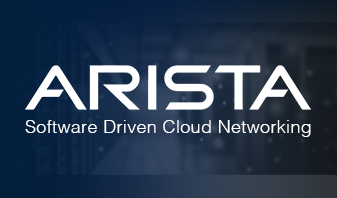Powering AI Centers with AI Spines
Leaf-spine architectures have been widely deployed in the cloud, a model pioneered and popularized by Arista since 2008. Arista’s flagship 7800...
3 min read
/Images%20(Marketing%20Only)/Blog/Jayshree_Ullal_024.png) Jayshree Ullal
:
Dec 9, 2014 2:56:05 PM
Jayshree Ullal
:
Dec 9, 2014 2:56:05 PM

The innovation of hundreds of startup companies created the Internet, and the Internet has changed the world. Innovation continues to have a dramatic impact on networking in recent years. These new developments have changed the way applications, workloads and networks interact. Having been involved in this industry for more than three decades, I have witnessed and been part of these transformations from the 1980s to the 2015 era. Each phase of innovation has been characterized by new companies and entrants, as depicted below:
| PHASES OF NETWORK INNOVATION | |||
|---|---|---|---|
| Epoch | Vendors | Network Technologies | Trends |
| First 1980–1995 |
AT&T, Sun, 3Com, NET, Proteon, UB, BBN, DEC, IBM |
ARPANET, Circuits, Hubs, SNA, Ethernet, Token Ring, Routers |
Terminal-Mainframes and Minis, Channel Attach |
| Second 1995–2010 |
Cisco, Juniper, Nortel/Bay, Alcatel, Lucent, Avaya |
Switching, Multiprotocol Routing, LAN-WAN, TCP/IP |
PC, Client-Server, Web, North-South traffic |
| Third 2010–present |
Arista, VMware, Facebook, Microsoft, Splunk, Red Hat, Palo Alto, Aruba, many others |
The SDN Era of Open, Programmable Networking, DevOps meets NetOps, Universal Cloud Networks |
Mobile Virtual Workloads and Workflows, Big Data, Hyperscale Web, Virtual Machines / Containers |
Dominant companies often fall by the wayside when they do not anticipate and react to clear market trends as technology evolves, and they consequently fail to invest in and develop next generation technology. They focus on maximizing earnings rather than growth and innovation. In the absence of innovation and the associated competitive products, these same companies often resort to tactics that do not benefit customers or expand markets as a means of defending their market position.
Arista pioneered a modern state-based OS that is years ahead of its time. This new approach to networking enabled a fundamental change in the way customers built cloud networks. The openness and extensibility of Arista EOS gave our customers the ability to innovate alongside us. That is the true spirit of Arista and it is one of the reasons we will work tirelessly to ensure that Arista EOS evolves with the needs of our customers.
The traits and characteristics of pioneers versus protectors are very predictable. Protectors defend old habits and remain strongly entrenched in following legacy technology trends. They try to enforce new buzzwords and dictate markets in ways that maintain their dominant position with customers. They are often in denial of new technologies and market disruptions until it’s too late. They deploy inappropriate tactics that serve to distract customers and partners from making the investments that will lead to competitive advantage.
Pioneers are trailblazers. They create and make technology and markets happen. They are not afraid to replace an older technology with a newer one. Pioneers anticipate trends and fulfill customer needs. Arista is maniacally focused on doing the right thing, the right way as we prioritize delivering high quality technology to our customers. We call this the “Arista way” and believe in this deeply for our employees, shareholders and executives.
| TYPICAL TRAITS OF A PIONEER VS. PROTECTOR | |||
|---|---|---|---|
| Pioneers | Protectors (Legacy Way) | ||
| - Set technology pace - Anticipate market trends - Innovate from a clean sheet of paper - Deliver timely & continued innovation - Tesla way: "All our patents belong to you" |
- Mimic technology - React late - Attach buzzwords - Deliver late - Approach incrementally - Exhibit patent troll behavior |
||
| - Market driven - Disrupt via technology - Are customer driven - Create & fulfill markets - Best of breed - Open and standards-based |
- Marketing driven - Bundle non-competetive products with legacy products, support or price drops - Defend market share with tactics - Ignore new market trends - Call markets and competitors "niche" - Declare victory: "Game over" |
||
Today, once again, Arista is proud to disrupt the status quo by introducing EOS+ as a platform for software driven cloud networking. We bring a range of technology partner solutions that provide customer value in concert with Arista from A10 Networks, Ansible, Aruba Networks, Cloudera, Microsoft, Nuage, Palo Alto Networks, Puppet Labs, Pure Storage, Red Hat, Splunk, VMTurbo, VMware and Zscaler. This platform allows for rapid deployment using DevOps models and network integration for reduced operational costs and deployment timeframes.
In the past, the networking, storage, compute, virtualization and applications worlds were built in silos. The innovative Arista EOS+ platform allows compute, storage and application teams to integrate with the network, leveraging the Linux and programmatic foundations of EOS. The EOS+ platform rollout includes:
I have to say that I have never seen such a high fever in networking in my 3+ decades of involvement. The transformation from point products to platforms is being driven by new technologies, new types of traffic-patterns and universal workloads. We are in the midst of a massive shift to an ecosystem of openness and programmability. Arista and the industry continue to drive the pace of innovation for public clouds, big data, security and virtualization – evolving the IT industry to deliver “cloud” business agility. Welcome to the new era of Software Driven Cloud Networking. As always I welcome comments at feedback@arista.com.

Leaf-spine architectures have been widely deployed in the cloud, a model pioneered and popularized by Arista since 2008. Arista’s flagship 7800...

The explosive growth of generative AI and the demands of massive-scale cloud architectures have fundamentally redefined data center networking...
/Images%20(Marketing%20Only)/Blog/VESPA-Launch-Blog.jpg)
The modern enterprise is navigating a profound transformation. The shift to the 'all wireless office' and 'coffee shop type networking', fueled by...